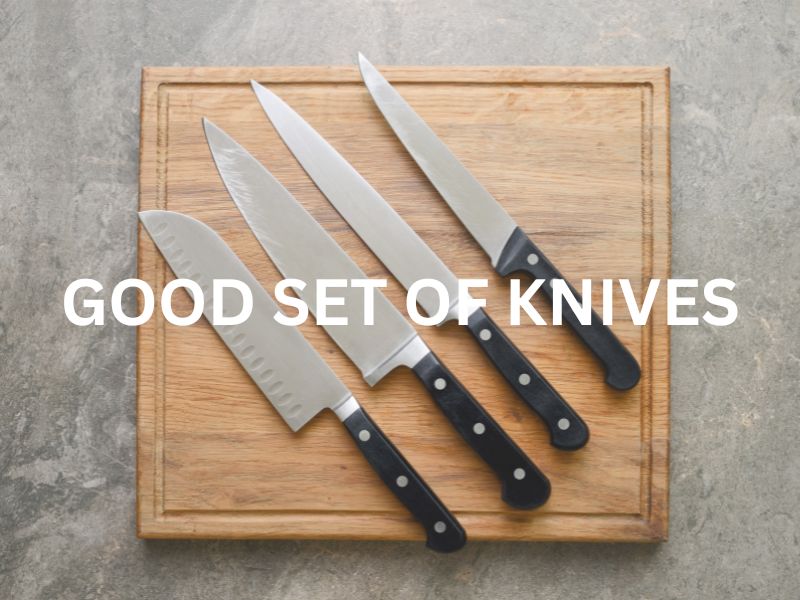Cooking, at its core, is a symphony of ingredients, time, intuition, and soul. Whether you’re a seasoned professional running a kitchen or an emerging talent striving to master the culinary arts, there’s always something more to learn—somewhere to refine, a flavor to deepen, or a process to streamline. So, this post is not just about tips—it’s a heartfelt tribute to the chefs who make cooking look like magic while juggling fire, steel, and the ticking clock. This one’s for our chef.
Here are some time-tested, soul-infused, and human-centered cooking tips that go beyond the basic “add salt to pasta water” variety. Let’s dig deep.
1. Know Your Ingredients Like Friends
Every ingredient has a personality. Tomatoes can be sweet, tangy, or acidic depending on when and how they’re harvested. Garlic transforms from sharp to mellow when roasted. Butter sings in sauces but may overheat in frying.
Get intimate with your ingredients—touch, taste, smell. Try them raw, cooked, roasted, fermented. Learn their backstories. Where did that peppercorn come from? Why does that fish taste different in spring? A good chef doesn’t just use ingredients—they know them.
Tip: Visit local markets. Speak with farmers and butchers. Ask questions. You’ll gain insights you can’t get from a supplier sheet.
2. Respect the Flame (and the Cold)
Controlling temperature is an underrated superpower in cooking. Most home cooks overheat, undercook, or both. As a chef, your command over fire and ice is what defines your consistency.
Understand how heat affects protein, sugar, fat, and starch. Don’t just aim for “done”—aim for “perfection under pressure.”
Tip: Don’t crowd the pan. Let proteins sear, not steam. And don’t ignore the power of a good chill—resting dough or meats in the fridge can enhance texture and flavor exponentially.
3. Mess Place: The Mind of the Chef
If your station’s a mess, your cooking will follow. The French concept of mise en place (everything in its place) isn’t just about chopped onions in tiny bowls—it’s a state of mind. It’s mindfulness before the madness.
Prepping ahead not only saves time but also allows your mind to focus on the artistry, not the logistics.
Tip: Don’t just prep—prep smart. Group ingredients by cooking stages. Label, date, and rotate. The quieter your mind, the clearer your flavors.
4. Taste Obsessively, Adjust Fearlessly
Tasting isn’t a final checkpoint—it’s an ongoing conversation. It’s how you listen to what the dish is saying and adjust your response accordingly. Don’t just taste for salt; taste for balance, brightness, depth.
Acid can lift, sugar can soften, herbs can punctuate, and fat can round it all out.
Tip: Keep a “flavor fix” kit at your station: vinegar, lemon juice, good-quality salt, a pinch of sugar, fresh herbs, and chili oil. These are your tools to sculpt flavor, not just correct mistakes.
5. Season from the Start, Not Just the End
A properly seasoned dish is like a well-written novel—it has depth, nuance, and a satisfying finish. But seasoning isn’t a one-time affair. It’s layered. From the first sweat of the onions to the final flourish of sea salt, every step is an opportunity to build complexity.
Tip: Salt your water, your aromatics, your proteins, and your sauces as you go. Let the dish evolve layer by layer, not just at the finish line.
6. Use Your Nose as Much as Your Knife
Your nose is a better guide than any timer. The scent of browning butter, the sharp tang of garlic hitting oil, or the caramelized sweetness of onions—all signal stages of readiness more accurately than the clock.
And as for knives—sharp ones aren’t just safer; they’re respectful. They honor the integrity of the ingredients.
Tip: Invest in a great chef’s knife, and learn how to sharpen and maintain it. A dull knife is a disrespectful one.

7. Trust Instinct, but Validate with Technique
Intuition grows with experience, but it should always rest on a bedrock of good technique. Anyone can throw together a salad; a chef builds layers of flavor and texture through method and precision.
If a sauce breaks, you fix it—not guess it. If a cut of meat is misbehaving, you know how to coax it gently into submission.
Tip: Don’t stop learning. Watch your peers, study the classics, read cookbooks like they’re literature. Even your instincts need mentorship.
8. Clean as You Go
A messy station is like cooking in chaos. It clutters your mind, slows your process, and increases the chance of mistakes. Cleaning as you go is a small act of discipline with a huge impact.
Tip: Set a timer every 15–20 minutes to do a quick reset: wipe surfaces, discard scraps, refill clean towels. Cooking is a dance—don’t trip over your own feet.
9. Let Your Dishes Tell a Story
Every plate should say something—about the season, the place, the culture, or even the emotion behind it. Food isn’t just fuel; it’s narrative.
Whether you’re creating a five-course menu or a single signature dish, ask yourself: What am I trying to say with this plate?
Tip: Sketch your plates before service. Think color, texture, architecture, and movement. And don’t forget the why behind the dish.
10. Be Curious, Not Competitive
The best chefs aren’t just skilled—they’re curious. They ask questions, explore new cuisines, challenge old habits. While competition can be motivating, curiosity is sustaining.
Tip: Set aside an hour a week to experiment. Pick a random cuisine, a new technique, or a forgotten ingredient. Document the process, not just the outcome.
11. Practice Empathy in the Kitchen
Great chefs don’t cook in isolation—they lead. And leadership isn’t just barking orders; it’s fostering an environment of respect, collaboration, and growth.
Your line cook may be having a rough day. Your dishwasher may be the backbone of your service. A good chef knows that a happy kitchen makes better food.
Tip: Start every shift with a 2-minute check-in with your team. Ask how they’re doing. Build camaraderie. Celebrate small wins. You set the tone.
12. Learn When to Let Go
Sometimes, despite your best efforts, a dish won’t come together. The risotto overcooked. The sauce split. The pastry collapsed. Accept it. Fix what you can, learn what you must, and move on.
Perfection is a moving target, and humility is part of the profession.
Tip: Keep a journal of lessons learned each week. Not just recipes, but emotional and logistical takeaways. It keeps you grounded and growing.
13. Protect Your Palate
Your palate is your most valuable tool—and it’s vulnerable. Smoking, over-caffeinating, or constant snacking dulls it. Too much repetition desensitizes it. Protect it like a musician protects their hands.
Tip: Start each day with a palate “warm-up.” Taste a slice of lemon, a sprinkle of salt, a sip of stock. Reset your sensory compass before service.

14. Cook With Gratitude
Cooking professionally can be grueling—long hours, physical strain, constant pressure. But it’s also a privilege. You’re feeding people. You’re creating moments. You’re nourishing lives.
So when you’re neck-deep in prep or barely hanging on during service, take a breath and remember: you get to do this.
Tip: Once a week, cook something just for you. No plating rules, no cost control. Just joy. Rekindle the spark.
Final Thoughts: Your Craft is Your Legacy
To our chef—yes, you—know that your hands are shaping more than food. They’re shaping memories, building culture, and telling stories without words.
So keep refining. Keep loving the craft. Keep learning, teaching, and tasting.
Because great chefs aren’t made in kitchens—they’re made in moments of passion, discipline, humility, and joy.
And in every plate you serve, we see your heart.
